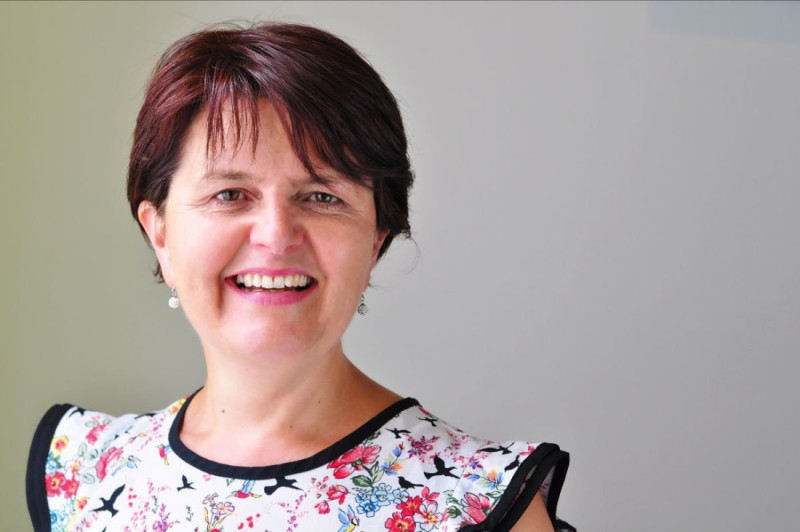In the News
Hundreds of thousands of students have been hurriedly revising for exams this month while providers have put plans into action to hold them under the shadow of the Omicron variant of COVID-19.
Once the government shifted to their Plan B for coronavirus in December, the Department for Education told providers to go ahead with January exams.
Education secretary Nadhim Zahawi made an “absolute commitment” at the weekend that exams will go ahead this month, when a series of vocational assessments are scheduled, and in the summer, when GCSE and A-level exams are set to take place.
Yet the Omicron variant has pushed education settings into delaying assessments or moving them online, with Newcastle and Northumbria universities both deciding not to run in-person exams on campus this month. Instead, students will complete alternatives such as 24-hour timed assessments or take-home papers.
Schools are also having to put in place contingency plans for this month’s mock GCSE and A-level exams, the results of which could prove essential in the event the summer series of examinations is called off for a third year in a row.
The Institute for Apprenticeships and Technical Education has extended a number of existing flexibilities for apprentice assessments from the end of January to the end of February.
Ofsted, too, suspended inspections in the last week of term in December so providers could put in place measures to mitigate against the spread of COVID-19, ahead of students returning to class this year.
Last year, while summer exams were cancelled, the government left it up to provider leaders to decide whether January exams should go ahead, leading several colleges to postpone theirs.
One in 25 teachers and leaders were absent from FE settings owing to COVID-19 on 5 January, according to government data out this week, up from 1.6 per cent in December. Seven point four per cent were absent from specialist providers. A thousand fewer students were attending colleges on-site on 5 January compared to December.
In the face of all this, The Mark today asks: what are providers doing to make sure exams and assessments can go ahead and has the government done enough to support them.
Interview
For this edition, we spoke to Dr Paul Phillips CBE, Principal and Chief Executive of Weston College Group, about his provider's preparations for January exams. While the college is pushing to make this series as straightforward as possible for students, he says the college has had to work to get students into an exam mindset.

What preparations have you been having to make for exams this month?
Weston College has adopted the “business as normal” approach in terms of entering and preparing students for January series exams, we have taken the extra precautions of requesting that students and invigilators take a LFT test the day before in addition to our twice weekly approach (Wed and Sun evening testing).
What have you found challenging about putting on exams and what have you found easier than assessments held in 2020 and 2021?
To support social distancing, we have halved the number of students we would normally have in an exam room therefore doubling our invigilation costs and on occasion have had to displace a timetabled lesson to gain access to an appropriate exam room
Roughly how many students have you had to defer or put forward for special consideration?
12 Jan 2022 was the first day of the Jan series at the college, we had a small number of students absent due to COVID-19 and two special consideration applications have been made due to students being on their first day out of isolation following testing positive for COVID-19. We have not deferred any students from the Jan series.
There is still a lot of work to do in terms of student expectation and understanding of what it is like to sit public exams
How do you rate the government’s help in ensuring this month’s exams go ahead?
The DfE guidance “Exam Centre responsibility for students…” was updated at the start of January and sufficient LFT arrived in college prior to the start of the exam series.
Do you feel well-prepared for the summer series of exams?
Our exams team are taking the “pre-pandemic” approach to preparation for summer series exams in terms of entries and timetabling them. We are seeing a significant rise in external candidates seeking to sit their exams with us at both GCSE and A-levels. There is still a lot of work to do in terms of student expectation and understanding of what it is like to sit public exams and focus for that length of time – many have never taken public exams due to two years of alternative grading methods. As a college we have had to adjust many of our approaches to curriculum delivery including initial assessment, sequencing of delivery and support for mental health. It has become apparent that learners lack of exam experience and lost learning are creating additional anxieties in young people that we are having to cater for.
Will assessments return to normal after this year, do you think? Should they, or what would you like to be held over from the assessments of the past few years?
I think that the public examinations post summer 2022 will return to as close to pre-pandemic as they ever will. Retaining adaptations to syllabuses in terms of extended formula sheets or areas of questioning pre-disclosed will facilitate a more applied assessment of learning and support the ongoing legacy of issues experienced by cohorts of learners who have missed learning and the challenge of exams.
Opinion
In this edition, the Association of Colleges' Senior Policy Manager for FE Cath Sezen discusses how January exams are top of the agenda for colleges and regulators.

Ensuring Fairness in Vocational Assessments is Essential
With all the recent media coverage about education focusing on schools and staff and student absences at the start of spring term it could appear that January vocational and technical qualification assessments, mainly taken in colleges, have been overlooked. They haven’t; colleges have been preparing students for assessments in line with Government guidance. January assessment is top of the list of meetings with DfE, Ofqual and awarding organisations.
Over the next couple of months hundreds and in some cases thousands of students in colleges across the country will be sitting exams which count towards their final grades. These qualifications are offered by seven awarding organisations: Pearson, OCR, WJEC, NCFE, AQA, VTCT and The London Institute of Banking and Finance. We also need to remember that apprentices undertake assessment all year round and are doing so now.
Key for colleges is ensuring fairness between those students who are able to take assessment and those who aren’t
January assessment won’t be without its challenges due to the surge in Omicron infections up and down the country affecting both staff and students perhaps more than at any other time during the pandemic. This impact will differ between and even within regions. However, after two years of disruption, colleges are keen to go ahead with exams to enable students to show what they can do having spent many hours preparing and revising. Key for colleges is ensuring fairness between those students who are able to take assessment and those who aren’t. College staff are committed to ensuring all students get the opportunity to complete their qualifications as smoothly as possible in order to support them into further study or employment.
Where students are absent the recommendation from DfE and Ofqual is to defer students where possible to the summer series and apply for special considerations where that is not possible. Ofqual has a handy rolling update on assessment guidance with links to the websites of all seven awarding organisations. If you have a question, take a look at the guidance and contact the relevant awarding organisation where necessary.
It is still early days in this assessment window. The experience of students and colleges during the assessment series is being closely monitored on a daily basis by awarding organisations, DfE and Ofqual. Here at AoC we are also in contact with the Department, Ofqual and individual awarding organisations feeding in queries from colleges. If as a college you have questions, let us know and we can feed them in and help to get answers.



